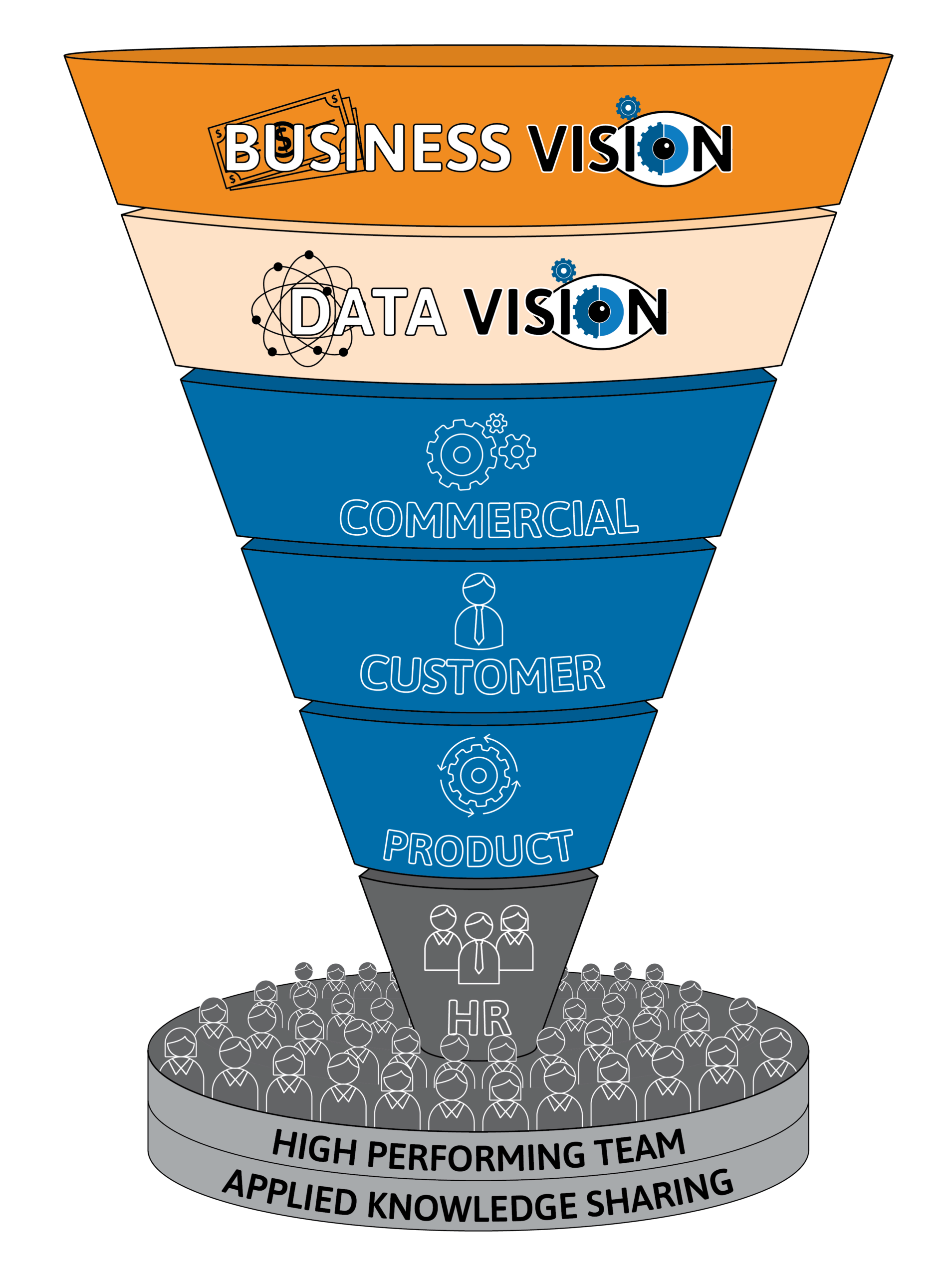
Data
You know it’s important.
You know you can harness it to do amazing things.
You’ve heard all the buzzwords – “Big Data”, “Predictive Analytics”, “Data Wrangling”.
But what does it all mean? And how can you convert the masses of data your company collects every day into useful and actionable insights?
Why is a Data Strategy Important?
Data is potentially one of the biggest and most important assets you have. A data strategy helps you drill down into your core business needs and identify the ways that data can support your overarching business strategy. It also provides a framework for how data is stored and shared, outlining standards for secure storage and sharing of data.
Customers often ask the question “I have all this data, what can I do with it?” – attempting to drive out outcomes in this way often fails to achieve the desired result. The data strategy identifies the value drivers, whether you have all the data you need and what data you may still need to acquire or generate. This is when data really drives value in the business.

If you’re interested in transforming your business through the power of data, our Mini Data Strategy might be right for you.
Once agreed we’ll take you through a workshop, broken up over focused sessions, which will help you define a clear data strategy that delivers on your business strategy and goals. Independently or jointly your business can immediately start using data to drive business value. Start to Unlock Value from Data, fill in the form below or call us directly to get started.
What is a Data Strategy?
A data strategy is a plan for how a company will move from hindsight driven decisions to data-driven foresight decisions. The strategy defines the steps to collect, store, manage and use data; it is not an exclusively technical plan but one that addresses people, culture and process. It creates the foundation for all data-related activities and sets out how insights gleaned from the data will be used to achieve business goals.
A good data strategy should be driven by your overall business strategy. Therefore, the first step in any data strategy is to consider your organisation’s strategic priorities and key business value drivers. Only then can you identify how you might use data to help you deliver those priorities and uncover real business value.
Essentially, the data strategy answers this question: what is your business trying to achieve and how can data help you get there?

What Do You Get?
Small - Medium Businesses
(<100 Employees)-
Workshop
-
Data Strategy
-
Road Map
Medium - Large Businesses
(100- 500 Employees)-
Workshop
-
Data Strategy
-
Road Map
Enterprise
(500+ Employees)Pricing
-
Workshop
-
Data Strategy
-
Road Map